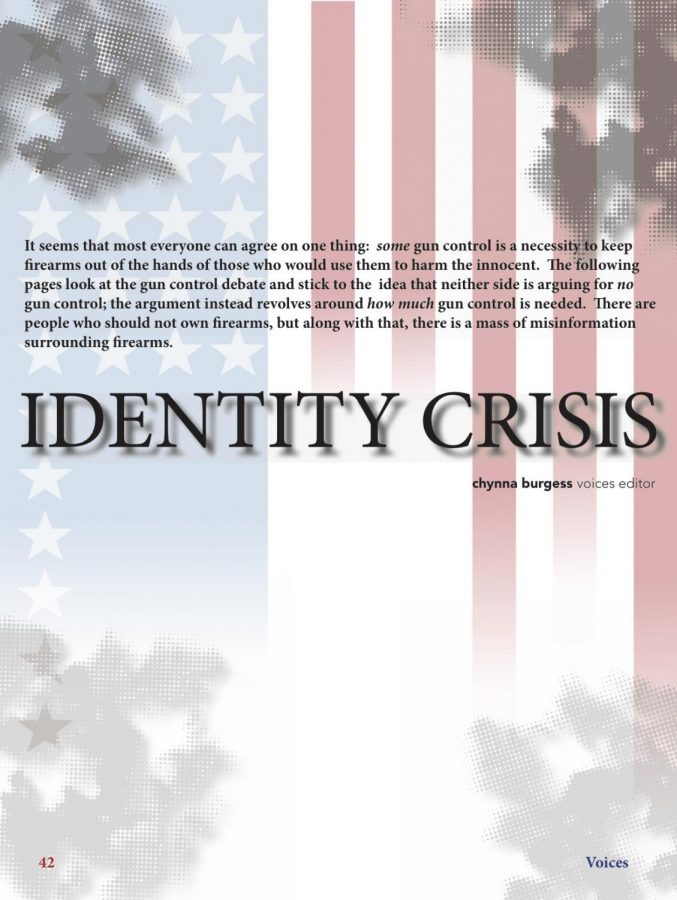Identity Crisis
Pro
More gun control, better regulations, with the task of keeping society safe. Those are the goals and motivation of those who support the idea of stronger gun restrictions.
The whole gun control as well as ownership issue stems from the vague second amendment. Stating, “A well regulated militia, being necessary to the security of a free state, the right of the people to keep and bear arms, shall not be infringed.” This has been interpreted as both the idea of allowing the citizens of the United States to own guns, as well as the idea that only military and those part of law enforcement may be allowed . The second amendment being written in the late 1700s does not reflect the changing times, due to development of firearms and other weapons. The founding fathers of this nation could not have dreamed of semi automatic much less automatic rifles that inhabit the firearms stores of today. There is also the attachments to account for. Scopes, silencers, flash suppressors; all fairly unnecessary for home defence.
Another proponent of the debate is the need for better background checks. The background checks are set in place to keep firearms out of those who have been criminally charged. Background checks also inhibit those who are not mentally well. A need for more intensive background checks has come to a forefront of this nation.
How else could gun control be more implemented? Gun amnesty is one that has been brought up, yet is tricky because of that second amendment. Countries such as Australia have been brought up where gun amnesty had taken place. Strict laws giving their citizens the inability to open both automatic and semiautomatic firearms have seemingly lowered homicide rates in the country. Yet, of course correlation is not causation.
Gun amnesty is of course the most extreme version of gun control, while a more intensive background check is fairly moderate.
Con
The gun control laws that are currently in place have worked for quite a while. The second amendment protects the right to own a gun, and this was officially deemed applicable to citizens as well as those in the military by the court case Mcdonald v. Chicago. This case set the precedent for future cases surrounding the second amendment.
Another piece to consider is the lack of information, or worse yet, misinformation, that surrounds firearms. Many call out the use of AR weapons with the idea of these weapons being assault rifles, yet the now infamous AR actually stands for Armalite Rifles (Armalite being he company that originally made these firearms). There is also a common idea that automatic guns are legal to purchase, yet federal law has made automatic guns illegal.
Mentioning these facts may seem irrelevant, but it’s important because they have the power to change the perspective of how we look at guns. We need to be able to look at the facts that surround firearms in order to successfully make a decision on what, if any, 0bstacles we put in place for those who should not own a gun.
Gun training and safety are also a key point for those who oppose added regulations. Proper gun training and safety could have the ability to drastically cut accidental shootings. Along with added safety training would be an emphasis for better mental health services, with the main concern surrounding those who suffer from depression.
Most people who are pro gun are not against gun control. After all, the background checks that are in place have done their job fairly well. It’s fair to say that the gun isn’t the problem; the person is the problem, especially those who suffer from mental health issues. A focus on helping those who are not mentally well may do more than any regulating piece of legislation can.



